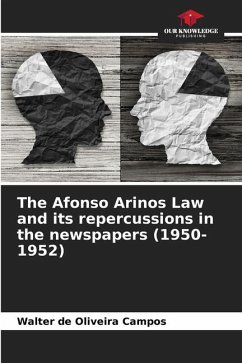This work is about one of the many aspects related to a subject that is an inexhaustible source of study, research and debate, namely a constituent element of Brazil's hierarchical social structure: racial discrimination against the black population. Among the various possible perspectives for analysis, the author has chosen to present a portrait of the birth of the Afonso Arinos Law of 1951, the first law against racial discrimination in Brazil. The sources chosen, some of the most important Brazilian newspapers between 1950 and 1952, reveal the ambiguous thinking of the Brazilian population and the political, academic and journalistic circles in relation to racial discrimination in Brazil. The myth of Brazilian racial democracy, ideology, symbolic power, representation of reality and, why not, naivety and malice regarding the notion of Brazilian race relations. These are some of the aspects that emerge from reading the newspapers of the time, which provide a snapshot of thinking about race relations and the first impressions of an anti-discrimination law that, although it didn't produce the expected legal effects, is still remembered as a milestone in the history of the fight against racial discrimination in Brazil.
Bitte wählen Sie Ihr Anliegen aus.
Rechnungen
Retourenschein anfordern
Bestellstatus
Storno

